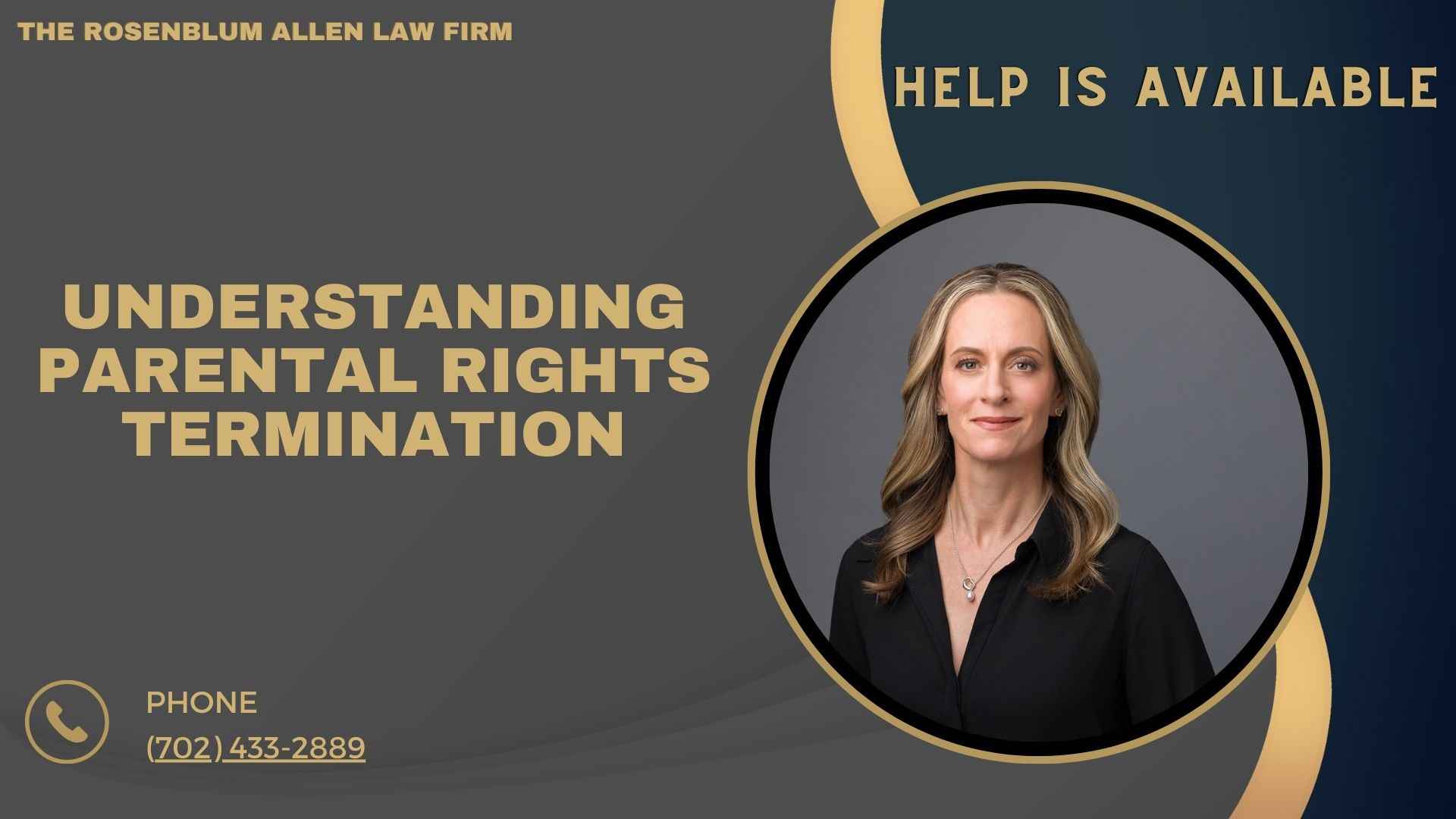When a child’s welfare is at stake. It is crucial to understand terminating parental rights. This guide provides insights into the law and the rights of parents and children.

Legal Basis for Parental Rights Termination
Understand the legal framework governing parental rights termination. Explore the many reasons for termination. Make sure to understand the legal rules and steps.
Initiating the Process
Discover who can file to end parental rights. Then, navigate court procedures. Learn about the necessary documentation and steps to start this significant legal process.
Factors Considered in Termination Cases
In determining parental rights termination, courts focus on the child’s best interests. Considerations include the child’s emotional and physical well-being, stability, and environment safety. We check the parent’s ability and willingness to care for the child. They must also maintain a healthy relationship with the child. We carefully scrutinize any evidence of harm or risk to the child. This ensures a thorough examination of the circumstances.

Rights of Parents in Termination Proceedings
Parents maintain certain rights throughout termination proceedings to ensure fairness and due process. These rights include the right to a lawyer. This allows them to advocate for themselves well. Parents also have the right to show evidence and witnesses. This supports their case and ensures the court hears and considers their view. Additionally, they can appeal court decisions. This gives them a way to seek recourse if they think the outcome is unjust.
Consequences of Parental Rights Termination
The consequences of ending parental rights are far-reaching. It can deeply impact both parents and children. The termination’s nature determines if it’s temporary or permanent. This has varying effects on custody and visitation rights. Also, ending a parent’s rights can change adoption and foster care. This alters a child’s life a lot. Despite termination, parents may still bear financial responsibilities for their children. This underscores the enduring duties of parenthood.
Challenges and Controversies
Parental rights termination is not without its challenges and controversies. Bias and disparities in termination cases may arise, impacting marginalized communities disproportionately. Rehabilitation and reunification efforts can be complex. Questions surround the quality of support services and resources. Culture and society also shape perceptions. They also shape expectations about parental rights and duties.

Resources and Support Services
Accessing resources and support services is essential for individuals navigating parental rights termination. Legal aid organizations offer invaluable help. They provide guidance and representation throughout legal process. Counseling and support groups offer emotional support. They also provide a sense of community for those facing termination. Government agencies and helplines can provide information and help. They can help individuals understand their rights and options.

Breaking It All Down
Navigating parental rights termination is a complex and emotionally challenging process. Yet, by knowing the laws, procedures, and rights. People can approach this journey with more clarity and confidence. It’s crucial to put the child’s best interests first. This means ensuring their safety, well-being, and stability. Having a lawyer and access to support services is vital. These things are vital for people in termination proceedings. They provide guidance and advocacy at every step. Termination can have big consequences. But, the goal is to ensure the child’s safety and welfare. By helping families through understanding and advocacy. We can work towards positive outcomes for all.

Frequently Asked Questions
What exactly is parental rights termination?
Termination of parental rights is a legal process. In it, a court permanently ends a parent’s rights and duties to their child.
Who has the authority to start parental rights termination proceedings?
Usually, a state agency, a guardian ad litem, or family members can start termination. They can do this if there are grounds to believe the child is at risk.
What are the reasons behind parental rights termination?
Reasons for termination vary. They often include abuse, neglect, abandonment, and mental incapacity. They also include substance abuse, crime, or parental unfitness.
How does the court decide whether to end parental rights?
The court considers the child’s best interests. It looks at factors such as the child’s safety, well-being, and stability. It also looks at the parent’s ability to provide care.
Do parents have rights during termination proceedings?
Parents have the right to legal representation. They can present evidence and appeal court decisions. This is to ensure fairness and due process.
What are the consequences of parental rights termination?
Consequences include the loss of custody and visitation rights. Someone may put the child up for adoption or foster care. The parent still has to pay.
What challenges do parents face in cases involving termination of parental rights?
Challenges include biases, disparities, and complex cases. Efforts aim to rehabilitate and reunite families.
Where can individuals find support during parental rights termination proceedings?
Legal aid organizations, counseling services, and support groups offer valuable support. Government agencies also provide help and guidance.

Additional Resources for You
Don’t forget that our lead attorney, Molly Rosenblum Allen, Esq, has also created additional resources to assist you in your time of need:
- Las Vegas Guardianship Attorney: Explore effective legal guidance for guardianship matters in Las Vegas.
- Legal Guardianship: Learn about the legal aspects and responsibilities of guardianship.
- Guardianship Forms: Access essential forms required for guardianship proceedings.
- Guardianship of a Child in Las Vegas: Get insights into the specific regulations governing child guardianship in Las Vegas.
- Adult Guardianship: Understand the legal process and responsibilities involved in adult guardianship.
- Types of Guardianship: Explore different types and variations of guardianship arrangements.
- Pros and Cons of Guardianship: Discover the advantages and disadvantages of seeking guardianship.
- Dependency Cases: Gain insights into legal proceedings related to dependency cases.
- Terminate Legal Guardianship: Learn about the process of ending a legal guardianship.
- Parental Responsibility for Disabled Adults: Understand parental responsibilities for disabled adults in Nevada.
- Nevada Power of Attorney: Explore the legal framework and requirements for establishing power of attorney in Nevada.
These resources cover various aspects of guardianship and legal matters, ensuring you have the information you need to make informed decisions.

Outside Resources for You
Here are some offsite resources to help you out:
American Bar Association (ABA): A national organization of lawyers that provides resources and support for legal professionals and the public.
National Guardianship Association (NGA): An association dedicated to promoting and supporting excellence in guardianship and conservatorship practice.
Child Welfare Information Gateway: A resource for professionals and the public on child welfare, including information on guardianship and parental rights.
National Association for Court Appointed Special Advocates (CASA): An organization that recruits, trains, and supports volunteer advocates who represent the best interests of children in court.
Elder Law Answers: A resource for legal information and support related to elder law, including guardianship and parental responsibility for disabled adults.
National Center for State Courts (NCSC): An organization that provides resources and support for state courts, including information on guardianship proceedings.
American Academy of Estate Planning Attorneys (AAEPA): An organization of estate planning attorneys dedicated to providing high-quality legal services and resources to the public.

A Special Message from Our Lead Attorney, Molly Rosenblum Allen, Esq

Hey there,
We want to thank you for taking the time to check out our resources! Feel free to reach out if you need further help or have questions. We offer free consultations, so don’t hesitate to schedule one by giving us a call at (702) 433-2889.
I am looking forward to the opportunity to assist you!






